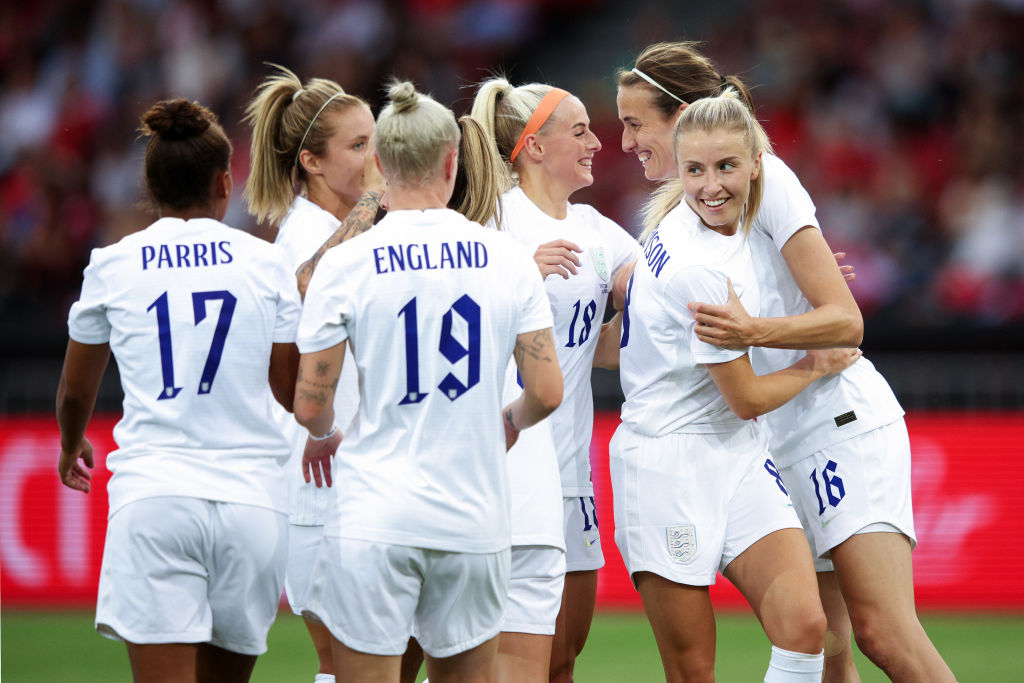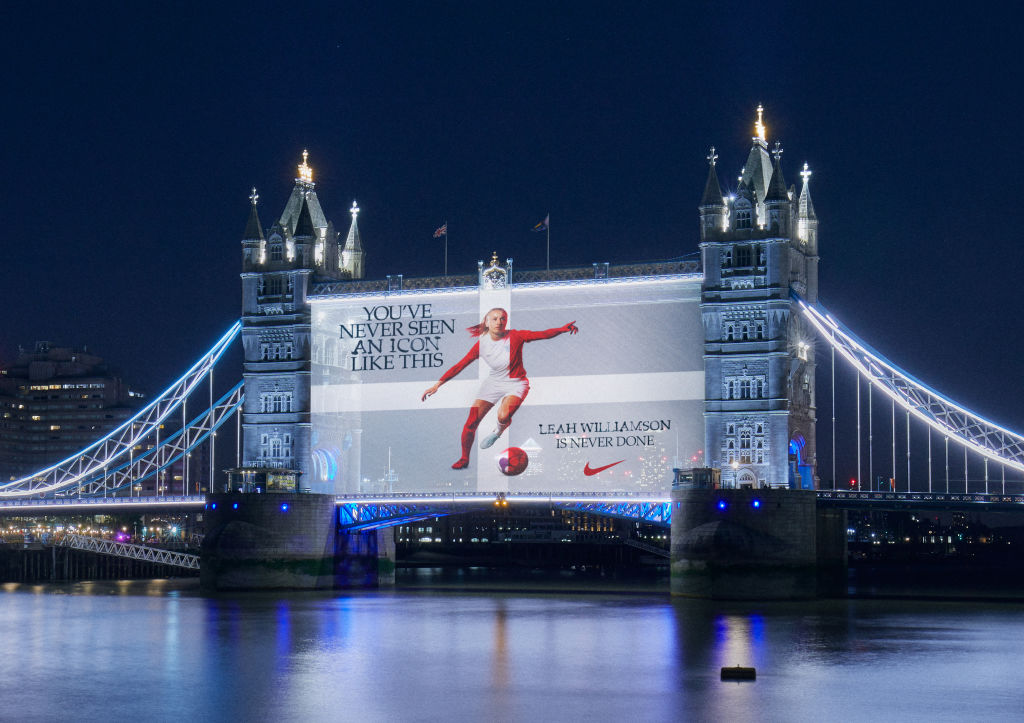Land of hope and glory? England and what would count as success at Women’s Euro 2022

The 140ft projection of England captain Leah Williamson beamed onto Tower Bridge this week was a reminder that Women’s Euro 2022 is here and hopes, like the image itself, are high.
Ticket sales have already broken records and the hosts, who open the tournament against Austria in Manchester on Wednesday night, are among the favourites to win the Wembley final on 31 July.
But judging the success of this Women’s European Championship for the Football Association will be more complex than merely counting seats sold or trophies won, and will also consider the impact on the wider population, increasing participation and further boosting the women’s game in this country, which has undergone a period of rapid growth.
Baroness Sue Campbell, the FA’s director of women’s football, is keen not to overstate England’s chances but admits they “would like to get towards the end of the tournament”.
“We don’t want to talk about winning because there’s an arrogance in that, and there are four or five teams who could win this tournament,” she told City A.M.
She concedes that it is an internal FA target that the women’s team wins either this Euros or the next World Cup in 2023. A home event typically represents a better opportunity.
“We’re ambitious, we want to do well, but we don’t want to put any more pressure on the players. It’s a home tournament – pressure enough, really.”
Campbell betrays some excitement, however, when talking about coach Sarina Wiegman, under whom England are unbeaten and have enjoyed notable wins over Germany and Holland.
Those two sides are among a clutch of contenders to win Women’s Euro 2022, along with France, Sweden and Spain, narrow favourites ahead of the hosts.
“I worked in Olympic sports for 10 years and saw some of the greatest coaches ever, and Sarina’s right up there,” she added. “She and the team want to make this nation proud.”
Regardless of how the Lionesses perform, the tournament has already met the FA’s target of 500,000 tickets sold – more than double the last Women’s Euro in Holland five years ago.
But more than that, Campbell is eager for those attending the games in venues from Brighton to Wigan to feed into a nationwide buzz.
“I want people to have had fun, watched great women playing great sport, but also to come out with that joy of being proud to be English, waving flags, skipping up the high street,” she said.
Charlotte Thomson, head of women’s football at media company Copa90, says the measure of Women’s Euro 2022 will be the extent to which it attracts more converts.
“Getting to Wembley and winning is the ultimate success, but I think actually it is measured in two ways,” said Thomson, who previously worked at the FA.
“One will be bums on seats, but the second will be when people who maybe have not paid interest to women’s football before are starting to recognise names and players.
“I want to hear the kind of discussion where you hear someone in a pub talking about it and you look and think ‘Oh, I wouldn’t place you as a women’s football fan’.”

Key to creating that wider resonance will be the tournament being broadcast free on the BBC, says Phil Carling, managing director of football at sports agency Octagon Worldwide.
“It’s absolutely pivotal that it is on terrestrial TV,” he said. “When you have something on the BBC scheduled in peak time it has an enormous impact.
“Suddenly your grandmother and grandfather start to watch and get drawn in, these girls become household names, the people know the name of the coach.”
Carling, a former commercial director of the FA, says that “success would be to normalise women’s football, rather than seeing it as some sort of exotic species”.
He added: “Something that the majority of the population have no hesitation in engaging with – for me that looks like success. Because then you get young girls who want to play, they’ve got role models, that grows participation and it’s like a hopper where the more you put in at the top end, the more you distil at the bottom and the standards improve.”
The FA is anxious to capitalise on the opportunity that hosting Women’s Euro 2022 presents for increasing domestic attendances and participation.
While the Women’s Super League received a major boost to its growth last season with the start of a new TV deal, that has not yet translated into bigger gates for games.
“That’s an issue for us,” said Campbell. “What we’ve got to do is convert those people [who attend the European Championship] to go and watch their local teams.”
Thomson agrees: “The real success will be how we see that [interest] spill over into next season into the WSL.”
The governing body’s plan to increase participation involves the establishment of a legacy programme in each host city area.
Campbell wants women’s football to be ready for new players taking up the game in a way that hockey was not in the wake of Team GB winning gold at London 2012.
“We are trying to look at this virtuous circle where you see a game, you’re inspired to play, you look where the nearest opportunity is and often there hasn’t been one for people,” she said.
“Women’s hockey got a massive uplift in terms of visibility, everybody wanted to play and there just wasn’t the capacity in the clubs to take a lot of young people. We’ve tried to build the capacity ready so that inspiration can get turned into participation.
“So it’s not just about performance on the field, it’s the joy and impact that tournament has on the nation – plus that legacy programme. Those will be the three big measures for us.”